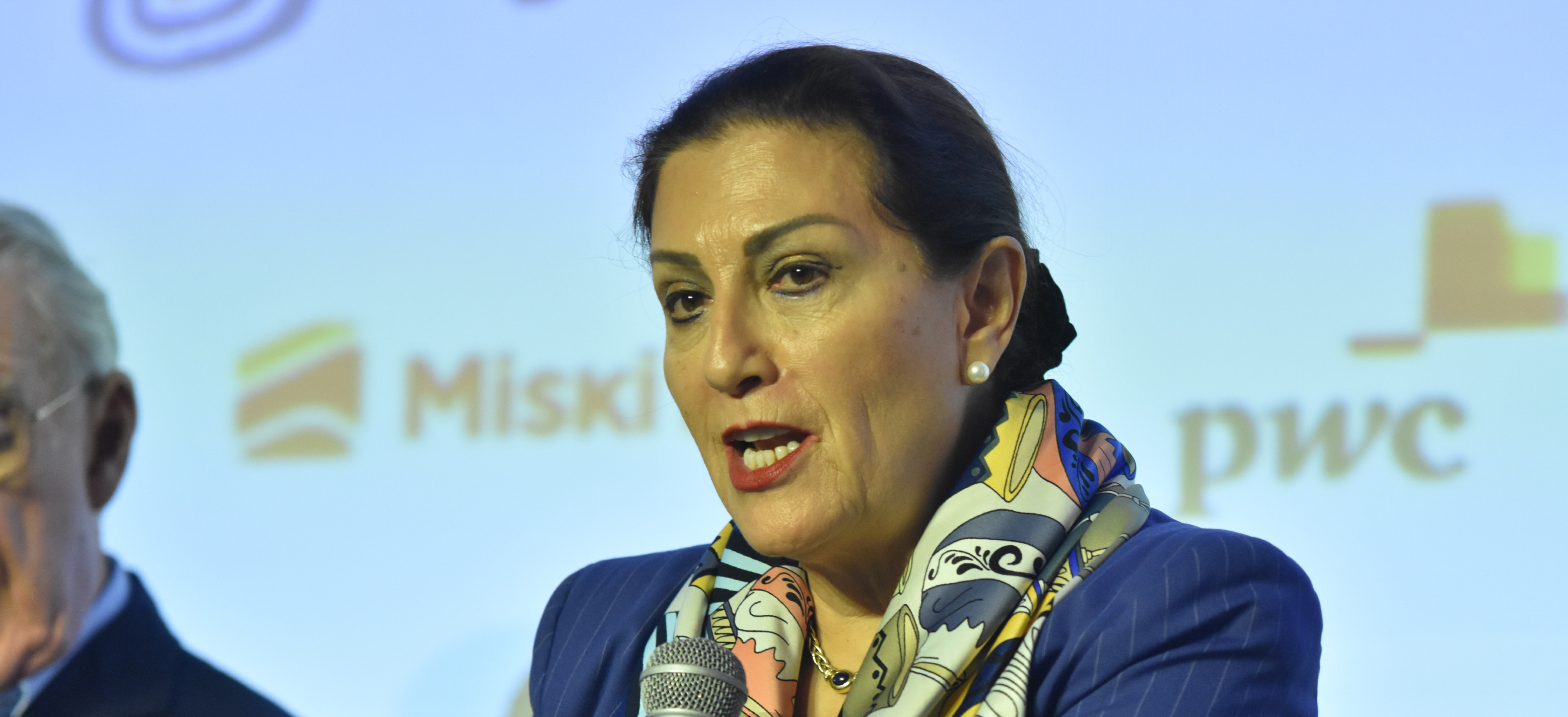Lima, OCTOBER 26 2023 SIMSA Proposes Partnerships for the Development of Clean Technologies and Bias Identification

Isabel Arias mentioned the Mining Program of Solidarity with the People initiative as an example of a strategic initiative that facilitated voluntary contributions for project funding.
With the view to building a more sustainable mining industry with equal opportunities, Isabel Arias, the CEO of San Ignacio de Morococha S.A.A. (SIMSA), proposed the formation of public-private partnerships focused on the development of clean technologies and the identification of gender biases.
According to her, the first partnership between the government, companies and civil society should focus on the production of clean technologies. This would allow us to concentrate on the implementation of projects against climate change, incorporating sources of renewable energy generation to mitigate the impact of polluting gas emissions.
She also mentioned that the second coalition should focus on identifying unconscious biases that affect women's careers in mining. This initiative would lead to the development of public policies to close gender gaps, promote women's inclusion in the sector and encourage leadership in key positions.
“The purpose of an alliance is to achieve mutual benefit. An example of this is the Mining Program of Solidarity with the People, which is the result of an agreement between the Ministry of Economy and Finance (MEF), the Ministry of Energy and Mines (MINEM) and mining companies. The intention is for these companies to allocate 3.7% of their net profits to the areas of influence,” she explained during her participation in PERUMIN 36.
Isabel Arias observed that social conflicts discourage substantial investments, putting tax revenues and growth opportunities at risk. Therefore, she emphasized the importance of initiating dialogue with communities and securing appropriate support from the state in the early stages of the mining project.
“Our country is one of the ten richest in mineral resources in the world, but recent conflicts have prevented us from realizing this potential. Therefore, the state, the private sector, and the community must engage in dialogue from the very beginning to convince ourselves that development is in our hands,” she reflected.
Finally, the president of SIMSA said that education is an integral part of the fight against poverty. Therefore, it is the duty of the State to ensure that children, adolescents and young people have access to inclusive, comprehensive and quality education. Education is a crucial tool for the authentic and tangible progress of the nation.
"We must be aware that the most important asset of a country is its people, and the more educated they are, the more they will contribute to development. An educated citizen is aware of his rights and responsibilities, understands the decisions he makes, and is not swayed by lies. For quality mining, we need quality education," she said.







